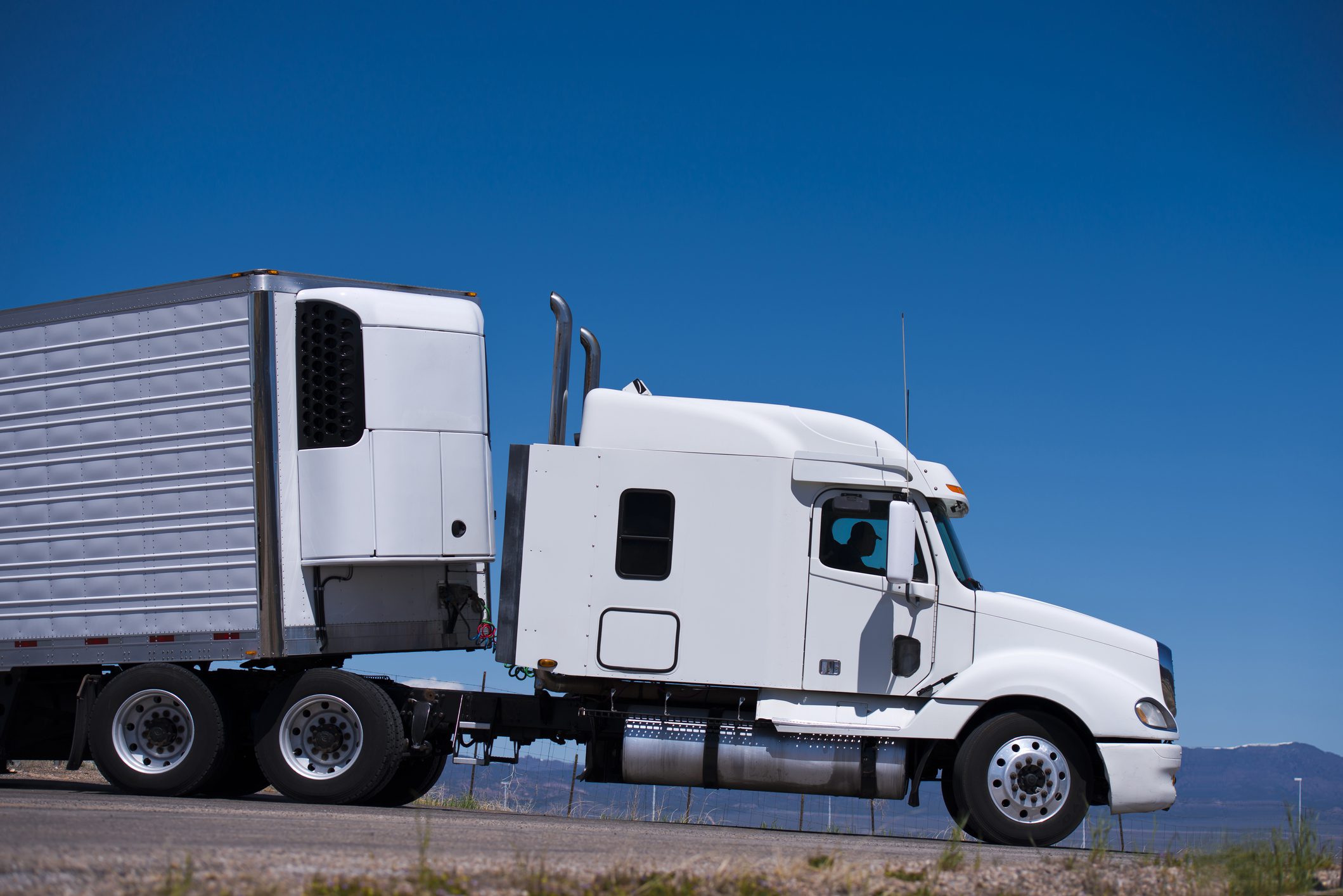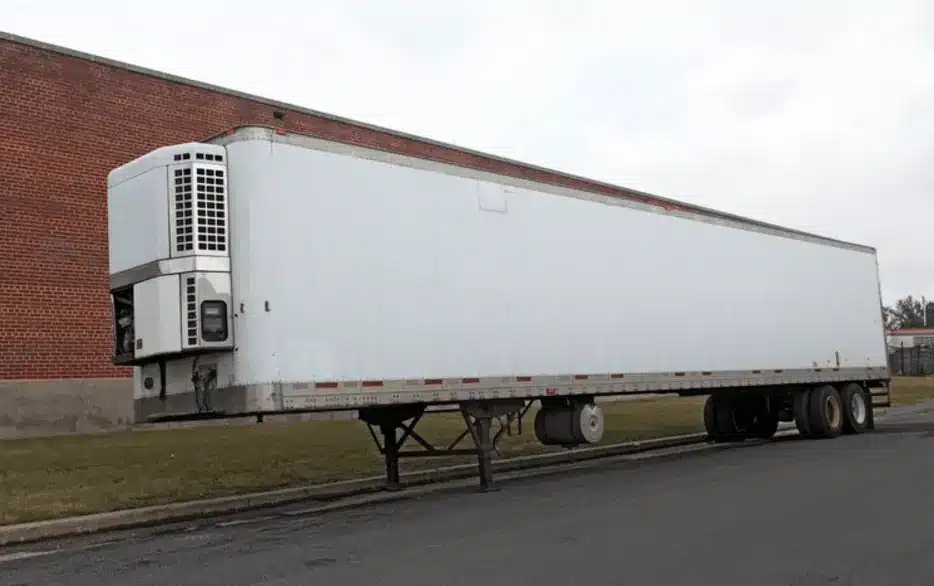Refrigerated Transportation Thermo King: The Ultimate Service
Refrigerated Transportation Thermo King: The Ultimate Service
Blog Article
Leading Technologies in Transport Refrigeration: Enhancing Performance and Safety
The landscape of transportation refrigeration is going through substantial makeover, driven by developments aimed at boosting both effectiveness and security. As these innovations continue to progress, it is vital to discover their implications on functional practices and regulatory conformity, prompting a more detailed evaluation of just how they improve the future of transportation refrigeration.
Smart Temperature Level Checking Equipments
In the world of transport refrigeration, wise temperature monitoring systems have actually become an important innovation for guaranteeing the integrity of temperature-sensitive items. These sophisticated systems leverage Web of Points (IoT) technology to offer real-time data on temperature level changes, allowing drivers to keep optimum problems throughout the supply chain. By continually tracking the temperature level of cooled containers and vehicles, firms can quickly identify inconsistencies that might jeopardize product top quality.

In addition, wise monitoring systems often include automated informs and alerts, enabling stakeholders to respond immediately to any prospective problems. This proactive technique not only lessens the risk of perishing but likewise enhances conformity with governing criteria regulating food safety and pharmaceutical transportation.
The assimilation of information analytics within these systems likewise assists in anticipating maintenance, aiding drivers to visualize prospective equipment failures prior to they happen. This capacity lowers downtime and optimizes functional effectiveness, inevitably resulting in cost savings.
Eco-Friendly Refrigerants
Smart temperature level tracking systems play a vital role in preserving item quality, but the effectiveness of transportation refrigeration also depends upon the choice of cooling agents used. As environmental worries rise, the shift towards green cooling agents has come to be vital. Traditional refrigerants, such as hydrofluorocarbons (HFCs), are well-known for their high International Warming Possible (GWP), contributing dramatically to climate modification. In contrast, arising options like hydrocarbon-based refrigerants and hydrofluoroolefins (HFOs) present lower GWP options, offering both performance and sustainability.
These environment-friendly cooling agents not just lessen ecological influence but likewise straighten with worldwide laws aimed at eliminating damaging compounds. Their fostering can lead to boosted energy efficiency, ultimately minimizing operating expense for transport refrigeration systems. The usage of all-natural cooling agents, such as ammonia and carbon dioxide, has acquired traction due to their excellent thermodynamic homes and lower ecological footprint.
Investing in green cooling agents is not simply a regulative conformity step; it stands for a calculated decision that improves brand credibility and fosters customer commitment. thermo king truck refrigeration. By focusing on sustainable techniques, firms can add to a greener future while ensuring the honesty of delivered items
Advanced Insulation Products
Utilizing advanced insulation products is essential for optimizing transport refrigeration systems, as they dramatically boost power performance and keep regular temperature level control. Standard insulation techniques frequently drop brief in protecting against thermal transfer, leading to increased power intake and changing temperatures within refrigerated areas.
Emerging products such as vacuum insulated panels (VIPs) and aerogels provide superior thermal resistance, permitting thinner profiles without compromising performance. VIPs, for example, utilize a vacuum cleaner layer to reduce convective and conductive heat transfer, making them excellent for space-constrained applications. Aerogels, known for their porous and light-weight framework, offer remarkable insulation while significantly minimizing total system weight.
In addition, incorporating stage adjustment materials (PCMs) into insulation systems can even more stabilize temperature levels throughout transportation. These products soak up and release thermal energy, efficiently buffering against external temperature level variations.
The integration of these advanced insulation products not just reduces the operational prices connected with power usage but additionally extends the shelf life of temperature-sensitive goods. As the transport refrigeration sector remains to evolve, the fostering of innovative insulation modern technologies will certainly be crucial in improving both effectiveness and security in cooled transport.
Automated Path Optimization
The effectiveness of transport refrigeration systems is substantially boosted with automated path optimization, which leverages real-time information and advanced algorithms to identify the most reliable paths for delivery. By analyzing various factors such as traffic patterns, climate condition, and delivery home windows, these systems can considerably reduce traveling time and fuel usage.
Automated route optimization minimizes human mistake and subjective decision-making, which can cause inefficiencies. This innovation enables fleet managers to allot sources better, making sure that refrigerated items maintain their called for temperature level throughout the journey. By maximizing routes, firms can also boost client complete satisfaction with prompt shipments.
Moreover, automated systems can adapt to unpredicted conditions, such as road closures or unexpected web traffic spikes, enabling dynamic rerouting. This flexibility not only protects the stability of temperature-sensitive items however likewise adds to general operational efficiency.
Applying automated route optimization can lead to significant expense financial savings while decreasing the carbon impact connected with transport. As businesses progressively focus on sustainability, this technology stands out as a critical element in modern-day transportation refrigeration, straightening functional objectives with environmental responsibility. Inevitably, automated path optimization represents a considerable advancement in the mission for efficiency and safety in transport refrigeration.

Real-Time Information Analytics
Automated course optimization substantially advantages from the assimilation of real-time information analytics, which provides crucial insights right into the efficiency of transportation refrigeration systems. By using real-time information, transportation operators can keep an eye on temperature variations and equipment efficiency, guaranteeing that perishable items are preserved within required specifications throughout transit. This positive strategy not just enhances the quality of the delivered items yet likewise reduces the threat of spoilage and loss.

Along with enhancing efficiency, real-time analytics enhances safety and security by making sure conformity with regulative requirements for temperature control. This not just secures public health yet additionally fortifies a company's track record - refrigerated transportation thermo king. As the transport refrigeration sector advances, the integration of real-time information analytics emerges as a foundation for driving development, sustainability, and functional quality
Conclusion
In verdict, the developments in transportation refrigeration dramatically improve both efficiency and safety within the market. Smart temperature level tracking systems and real-time information analytics supply crucial oversight, while green cooling thermo king transport refrigeration agents and progressed insulation materials contribute to sustainability and energy effectiveness. Automated path optimization formulas not just decrease travel time however additionally decrease ecological influence. Jointly, these advancements represent a vital advancement in transport refrigeration, ensuring compliance with regulatory criteria and advertising a greener future.
The landscape of transportation refrigeration is undertaking substantial transformation, driven by advancements intended at boosting both efficiency and safety.Smart temperature surveillance systems play an important duty in keeping product top quality, yet the efficiency of transportation refrigeration also pivots on the choice of refrigerants made use of. Their adoption can lead to enhanced energy effectiveness, inevitably minimizing operating expenses for transport refrigeration systems. Inevitably, automated course optimization represents a substantial advancement in the quest for effectiveness and security in transport refrigeration.
In final thought, the improvements in transportation refrigeration dramatically enhance both effectiveness and safety within the sector.
Report this page